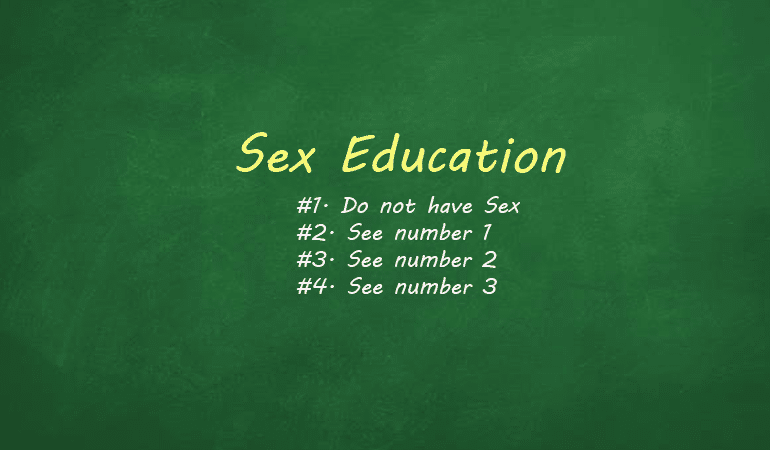The hullaballoo over sex education reached its zenith recently when the health minister of India proposed to ban whatever little sex-ed we have in our schools. Criticism poured in from all quarters and social media was flooded with comments criticizing the ludicrous proposition.
However, we should probably hold back and think for a moment as to what we are criticizing!

Was sex education ever a part of the Indian educational curriculum? I never remember attending any sex education classes in my school despite the Adolescent Education Programme initiated by the UPA government – reflective of an ingrained erotophobia (fear of the erotic) in the country.
Why Are We Scared Of Sex Education?
It is evident that the controversy surrounding sex education stems from a deeply seated misconception about the subject. We tend to equate sex education with vulgar talks, erotic foul speak, and pornographic activities. Anything to do with sex threatens to shake our so-called value system and corrupt our youth.
However, contrarily, sex education stands for gender sensitization, knowledge of the sexes, HIV, STDs, menstruation, and other related issues. It also teaches to respect alternative sexual preferences. The problem arises when morality or ethics get enmeshed with the issue of sex education.
In most countries of the world, sex education is a part of the curriculum. In many European nations, it has been a part of classroom education since the 1970s. While it is not a compulsory course for every institution, they introduce the concept through other subjects of study. For example, biology classes can be a very effective space for discussions on safer sex and other issues pertaining to the subject.
In a nation where sexual violence is an everyday reality, there cannot be any alternative but to start an unbiased sex education program, as early as possible. However, both the UPA and the present NDA government have failed to understand the worth and efficiency of an effective sex education program. Poor structure and poorer implementation have resulted in sex education dying a slow death across states.
Can We Really Avoid Discussing Sex Alleging That It’s A ”Western Import”?
This is the land that had produced the ‘Kamasutra’ and the journey from ‘Kamasutra’ (the text) to ‘Kamasutra’ (the condom) has been regressive instead of progressive.
The most common argument against the implementation of sex education in schools is that of culture, tradition, and customs. However, it is high time our decision-makers realized that it is not culture or tradition that would prevent HIV or sexually transmitted diseases, but condoms will and proper sex education will.

Sex education does not corrupt young minds, it helps clear concepts and misconceptions and sensitizes them on several issues. To understand sex education correctly, our leaders need to shed the inhibitions they conveniently disguise as ethics and morality. Until then, it is better not to embark upon a hasty sex education program imparted by a prejudiced regime that conducts moral policing and forces a false Hindu sentimentality on its population.
Because getting sex education from people whose own ideas of sex, sexuality and gender are flawed and convoluted would be like learning from a teacher who never went to school!
image: source

